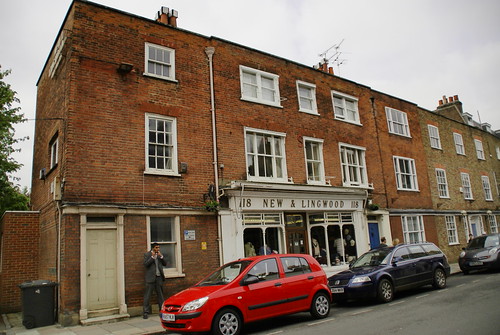England, the World Cup’s Great Survivor, Runs Out of Lifelines
England #England

Until Sunday night, England met every tough situation it fell into during the Women’s World Cup the same way: It found a way out.
When it arrived at the tournament without three injured stars, it quickly found a new one, and when it lost her to a suspension after the round of 16, it figured out how to win two games without her, too. When it fell behind against Colombia in the quarterfinals, it scored a tying goal almost immediately. When it came face to face with elimination in the semifinals against Australia, up against both the home team and an entire stadium after striker Sam Kerr erased England’s early lead, it held fast and delivered two more goals to post a convincing win.
So it was understandable when, in the 70th minute of the World Cup final against Spain on Sunday in Sydney, Australia, England Coach Sarina Wiegman thought her team had found an escape hatch yet again. Goalkeeper Mary Earps had just saved a Spain penalty kick. England had a lifeline. Surely, Wiegman thought, it would find a new way out.
“I thought, ‘Now we are going to score a goal,’” Wiegman said. “‘Now we are going to score a goal and get to 1-1.’ But we didn’t.”
The goal never came, the minutes ticked away, and then it was over: England had lost to Spain, 1-0. Lucy Bronze, who had lost possession of the ball in the moments before Olga Carmona scored Spain’s goal, lay face down on the grass, alone in her grief. All around her, the Spanish players celebrated and her teammates stood in stunned silence, left with no place to go until they had collected the silver medals no player wants.
Afterward, as the England players filed back to their locker room, to face the questions, they struggled to describe what had just happened. Several players, still with tears in their eyes, declined to stop. Defender Jess Carter paused when asked about Spain’s game-winning goal, trying to find a clear enough memory to be able to respond. Millie Bright, the England captain, couldn’t quite answer affirmatively when asked if Spain deserved the trophy.
“If we put the ball in the back of the net, it’s game on — it’s a different story,” Bright said. “But it’s football. It’s so hard.”
For the first half of the final, Spain was unquestionably the better team. England had an early shot from forward Lauren Hemp that pinged the crossbar, but Spain dominated both possession of the ball and the game’s best scoring chances. Spain prevented England from being able to push the ball upfield, and by creating one-on-one matchups with defenders as it pressed forward, it put the Lionesses, one of the tournament’s most organized and tactically sound teams, on their heels.
“The way we played in the first half,” midfielder Georgia Stanway said, “was not England standard.”
England still had time, though, to find a way out. Wiegman switched formations at halftime, swapping a defender for forward Chloe Kelly and inserting Lauren James into midfield, and the moves immediately changed the dynamics.
Kelly, adding energy and speed on the outside, and James, one of England’s best players before her two-game suspension, were soon creating chances. But the goal England needed so desperately, the one that might extend the game and put Spain on its heels, never came.
Spain was one of the teams that England defeated on its way to winning the European Championship last year. But if there was one takeaway from this World Cup, it was that the level of play in the women’s game continues to rise, in tandem with the rising support and investment in women’s professional leagues. England was the favorite entering the final. But Spain offered a different challenge this time, and it had England on the back foot almost from the opening whistle.
This time, Spain got the goal it needed to take the lead. This time, Spain held its nerve after Earps saved Jenni Hermoso’s penalty kick with 20 minutes left. This time, it was England left to grapple with the devastation of coming one win short of holding the trophy its players have coveted for their entire playing careers.
They were still processing all of that as they waited on the field to collect their runner-up medals, an agony that, for more than half an hour, gave them a front-row seat to the celebration they had wanted so badly to have for themselves.
While they waited, Wiegman gathered her players and reminded them that they should still be proud, that they had come so far and so close. It was a speech that not everyone was ready, or able, to hear. Bethany England said it was too loud to make out every word. Stanway admitted that she was too upset to listen.
Now, the England players will return to their club teams, and this fall they will turn their attention to qualifying for next year’s Paris Olympics, the next major competition on the calendar. But the magic of the World Cup, and also the cruel reality of losing the final, is that the sting won’t go away soon.
Wiegman knows that feeling better than anyone: She was on the losing side when the Netherlands fell to the United States in France in 2019. Now she will have to face the long wait for another shot all over again.
“Four years,” she said, “is a really long time.”